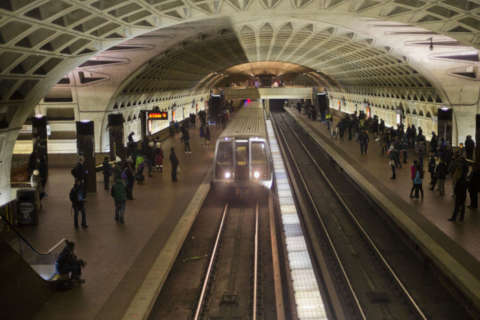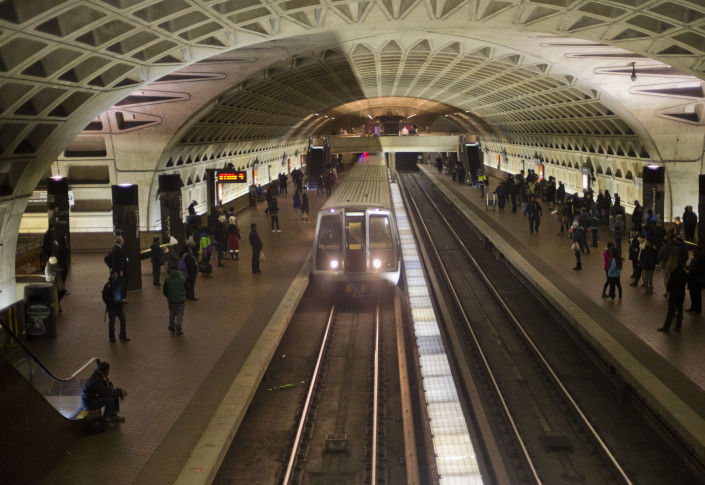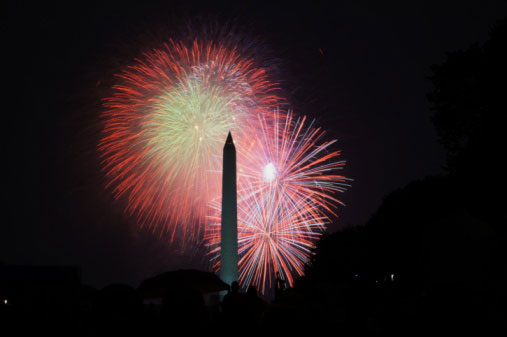
WASHINGTON — The new Metrorail Safety Commission’s CEO slammed Metro Board Chairman Jack Evans and other District politicians Wednesday over D.C.’s push to restore Metro’s former late-night hours.
The price of such a change, the commission said, would be Metro’s safety and reliability.
“Metro has provided data that show that having additional overnight hours to turn off power to inspect cables and test components for electrical safety has enabled it to find and fix problems, thereby reducing the risk of fire and smoke events,” David Mayer, the commission’s CEO, said in a statement.
Evans, as he has in the past before eventually backing down after negotiating the sunset clause set to kick in next year, threatened this week to block a vote Thursday to continue Metro’s current hours through at least July 1, 2020. The District believes the cuts to evening and weekend service have created significant hardships for riders and businesses, even if there might have been some maintenance improvements.
Evans told WTOP late Wednesday he now expected the hours vote to be pulled from the agenda during Thursday’s meetings due to the united opposition from him and D.C. Mayor Muriel Bowser’s appointee to the board Corbett Price.
Without a vote sometime in the next few months, the old hours would return in July.
Metro is looking into alternative ways of doing some maintenance where possible, but has said safety efforts must be prioritized over providing service to riders.
Still, the independent safety commission, the Federal Transit Administration and Metro say keeping the system closed for the additional hours is crucial to the implementation of safety and inspection programs, some of which Metro had in the past but did not follow through on.
Metro cites reduced emergency track issues as evidence the additional hours are working, along with anecdotal evidence that areas where some of these maintenance programs have been done have fewer issues.
It remains unclear how much of that credit goes to the programs that can only be done when a segment of track is shut down, like power cable testing, as opposed to Metro’s litany of longer-term 24/7 shutdowns that have been done over the past 2.5 years. Those round-the-clock shutdowns are scheduled to continue indefinitely for a variety of projects.
Why weigh in now?
The Federal Transit Administration maintains direct safety oversight of Metro, but the safety commission established by Maryland, Virginia and D.C. is expected to be fully certified and take over that task before an April deadline.
Because Thursday’s vote could set Metro’s hours from July 1, 2019, through July 1, 2020, after the commission takes over, the safety commission staff determined it had to weigh in now to protect riders and ensure Metro progresses rather than regresses.
“We are paying close attention to issues such as whether expanding service hours could erase these safety gains, so that we will be prepared to take action that may be warranted after we are certified,” Mayer said.
D.C. Metrorail Safety Commissioner Robert Bobb said in an interview that the full commission had not taken a formal position on the hours, and there should be further investigation before the commission weighs in, including additional analysis independent from Metro’s own calculations.
Former National Transportation Safety Board Chairman and current Metrorail Safety Commission Chairman Christopher Hart did approve the statement though, Bobb said. Hart is also a District appointee.
The commission has wide-ranging powers, including the power to direct Metro to suspend service if necessary and to spend money on specific safety-related projects.
While the hours changes are on the agenda for Thursday, the board does not need to act this month, so the item could be deferred.
The board is also separately due to vote Thursday on changing parking fees, charging more on weekends or holidays when there are major regional events, and is due to again discuss the agency’s next budget.
Maryland is pushing for fare hikes in the next budget, Virginia is pushing back against some of the proposals to expand service due to additional costs, and the District’s Metro Board members are largely pushing for everyone to simply pay up.








